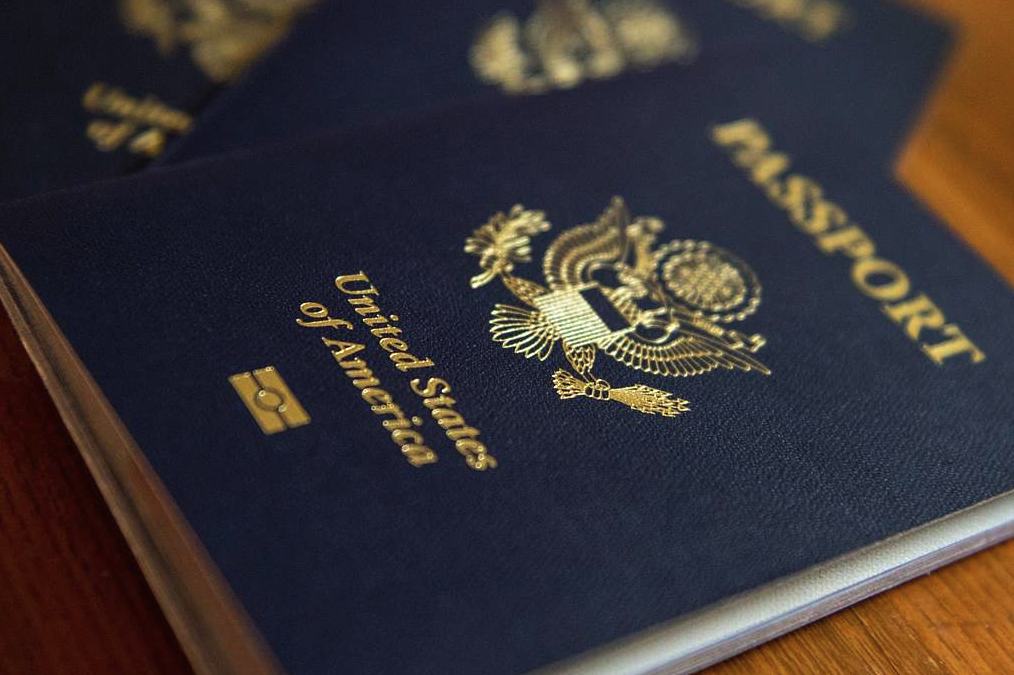WASHINGTON – When news of President Donald Trump’s latest proclamation regarding the H-1B visa broke, Sydney rushed to check on her close friends.
Sydney, an H-1B visa holder from Taiwan, requested that her real name be withheld to protect her privacy.
“One of my friends just traveled back home for a wedding,” she said. “So we were like, ‘Are you back in the U.S.?’ — just making sure she saw the news.”
On Sept. 19, Trump signed a proclamation requiring a $100,000 fee for employers filing H-1B petitions. The program allows employers to hire international professionals in fields like technology, engineering and health care. White House spokesperson Taylor Rogers explained that the proclamation was intended “to put American workers first … by discouraging companies from spamming the system and driving down wages.” The proclamation triggered confusion over re-entry rules.
Sydney and her friends were not alone in their concerns.
The wording of the initial announcement left many uncertain whether the $100,000 fee would be charged each time an H-1B visa holder re-entered the U.S. Some visa holders who were traveling abroad rushed back to the U.S. before the policy took effect to avoid the potential six-figure fee and shared their experiences on social media.
“I would, of course, like to stay for as long as I can, but … I think I’m gonna have to start having my plan B in mind,” said another H-1B visa holder from India who asked to remain anonymous to avoid retaliation. “So the next time something like this happens, I have an exit strategy planned out.”
Others, like Sydney, are making preparations in case they are denied reentry to the U.S.
“My colleague was telling me that if I still decided to visit home … (to) make sure to leave my keys with them,” Sydney said. “So if I really got denied re-entry, they could help manage my stuff.”
On Sept. 20, White House press secretary Karoline Leavitt clarified in a post on X that it will only be a one-time fee. The change applies to new H-1B applications submitted after Sept. 21. Big Tech companies such as Amazon, Microsoft and Google are among the largest sponsors of H-1B visas according to 2025 employer data from U.S. Citizenship and Immigration Services.
“One thing this administration is overlooking … this might mean offshoring of many of these jobs,” said Bill Hing, a professor of law at the University of San Francisco.
Hing said companies could create virtual positions overseas to avoid the fee, but that the proclamation is unlikely to significantly affect the broader labor market due to the program cap. The Immigration and Nationality Act limits annual distribution of H-1B visas to 65,000, with an additional 20,000 for applicants with advanced degrees from U.S. institutions.
Some international students said the policy made them consider career opportunities outside the U.S.
“As an international student, we feel very threatened,” said one student who asked to remain anonymous for privacy. “Because at each level of our existence in the U.S., we have been kind of targeted.”
“If they’re sure that they only want Americans to hold these positions, fine,” Sydney said. “Just make sure that they understand that this would definitely affect people’s intentions or willingness to study in the U.S. in the first place.”
Still, Hing said employers or workers might challenge the proclamation.
“There are fairly regular fee increases that occur … so there’s definitely going to be a lot of criticism, arguing that this isn’t related to a need for the agency to increase fees,” Hing said. “It’ll be interesting to see whether or not the courts defer to the administration on this.”

